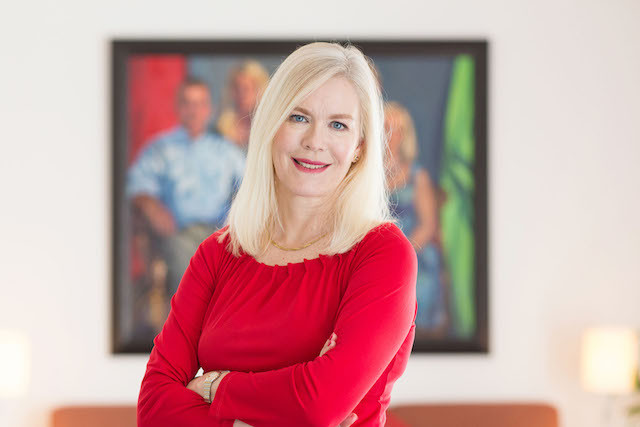The story is detailed in a blogpost by Angela Gui, the daughter of Gui Minhai, a Chinese-born Swedish bookseller who has disappeared twice and is currently held in Chinese custody.
Gui Minhai was one of five Hong Kong-based booksellers – known for publishing sensational tomes on the private lives of China’s elite – who disappeared in 2015 and resurfaced in mainland China two years later.
He was released in October 2017, but was arrested on a train to Beijing in January 2018 while travelling with two Swedish diplomats. He was reportedly en route to see a Swedish specialist over fears he had the neurological disease Amyotrophic lateral sclerosis, or ALS.
Angela Gui, who is a PhD student at the University of Cambridge, has been vocal about calling for her father’s release.
In the Medium post, Gui details the “very strange experience”, alleging that she was contacted by Anna Lindstedt, Sweden’s ambassador to China, in mid-January and invited to Stockholm to hear about a “new approach” to her father’s case.
Lindstedt returned to Stockholm on Wednesday to meet officials from the foreign affairs ministry, the Swedish embassy in Beijing told AP by phone. Lindstedt is not under criminal investigation. The embassy declined to give further details, but a foreign ministry spokesman in Sweden confirmed that Lindstedt’s departure was related to meetings she arranged between Gui and the Chinese businessmen.
“She didn’t explain very much, but said that there were some businessmen she thought could help, and that they wanted to meet me in Stockholm. She’d join too, and these were people she trusted, she reassured me,” wrote Gui.
Gui said the meetings were held at a hotel lounge, which required keycard access. She was encouraged not to leave the suite, with the businessmen saying they needed her to “be around as much as possible”. She said she was even escorted to and from the bathroom.
After several days, during which time Gui says she was offered a job at the Chinese embassy, Gui said she felt a growing sense of unease.
“There was a lot of wine, a lot of people, and a lot of increasingly strange questions. But because Ambassador Lindstedt was present and seemingly supportive of whatever it was that was going on, I kept assuming that this had been initiated by the Swedish foreign ministry,” wrote Gui.
She alleges the men told her that talks were underway with Beijing to secure her father’s release but that in order for them to succeed Gui must stop talking about the case and avoid media engagement because “‘the Chinese’ were very angry with me”.
Gui says Lindstedt agreed to the plan and promised that if Gui’s father was released she would “go on Swedish television and speak of the bright future of Sweden-China relations”.
Gui claims that the conversations took a nasty turn, with one man saying she had to trust him or she would never see her father again and that her refusal to cooperate could harm the ambassador’s career.
“Ambassador Lindstedt added that China were adopting a new diplomatic line which meant that if activism and media coverage was to continue, China might ‘punish Sweden’,” wrote Gui.
Gui said she rang the ministry of foreign affairs the following week and they told her they were unaware that these meetings had taken place and were not even aware Lindstedt was in the country.
A spokesperson for the Chinese embassy in Stockholm denied any involvement in the incident. “The embassy of the People’s Republic of China in Sweden would like to solemnly state that the Chinese side has never authorised and will not authorise anyone to engage with Gui Minhai’s daughter,” the spokesperson said. “China is a country of rule of law, and the result of the Gui Minhai case is to be decided by China’s law, instead of the so-called ‘China’s representative’ claimed by Gui Minhai’s daughter or the press. We hope that some people will not try to gain publicity for themselves by making up a so-called ‘China’s representative’.”
Gui concluded her post by saying she would continue to campaign for her father’s release: “I’m not going to be quiet in exchange for a visa and an arbitrary promise that my father ‘might’ be released. Threats, verbal abuse, bribes, or flattery won’t change that.”
Kate Lyons
